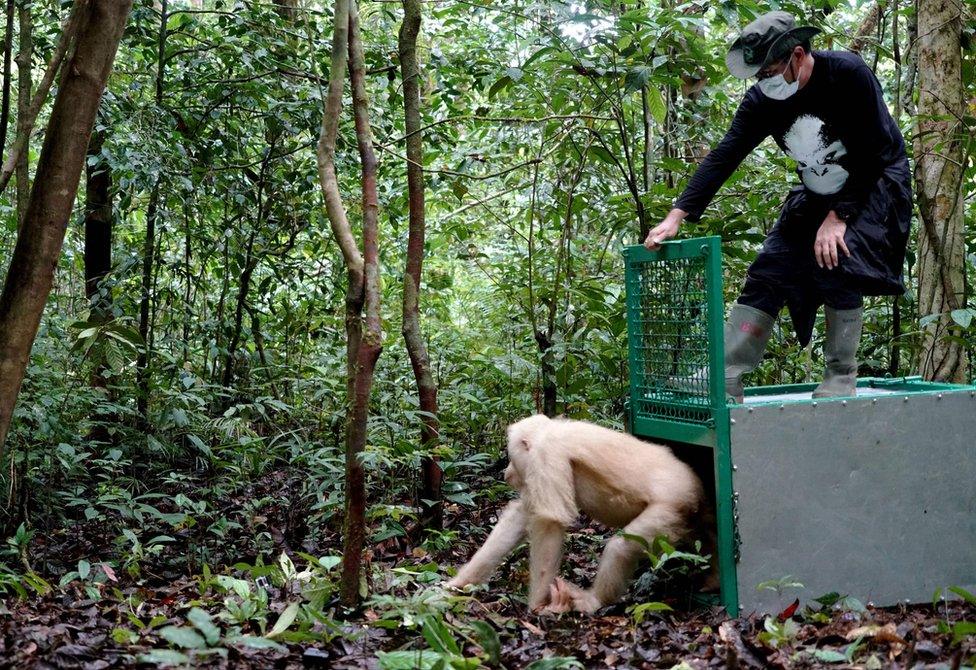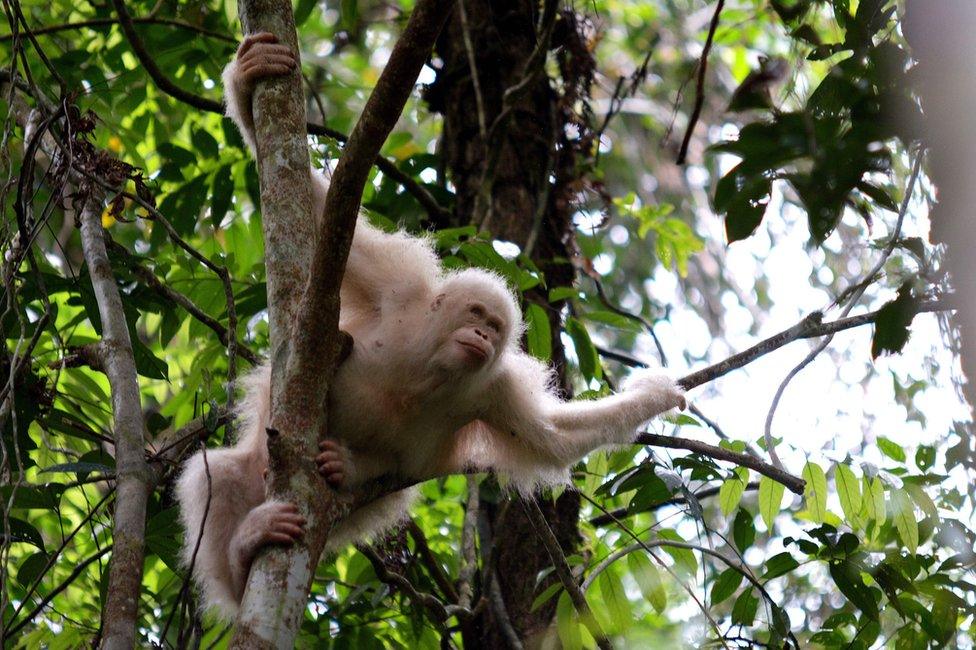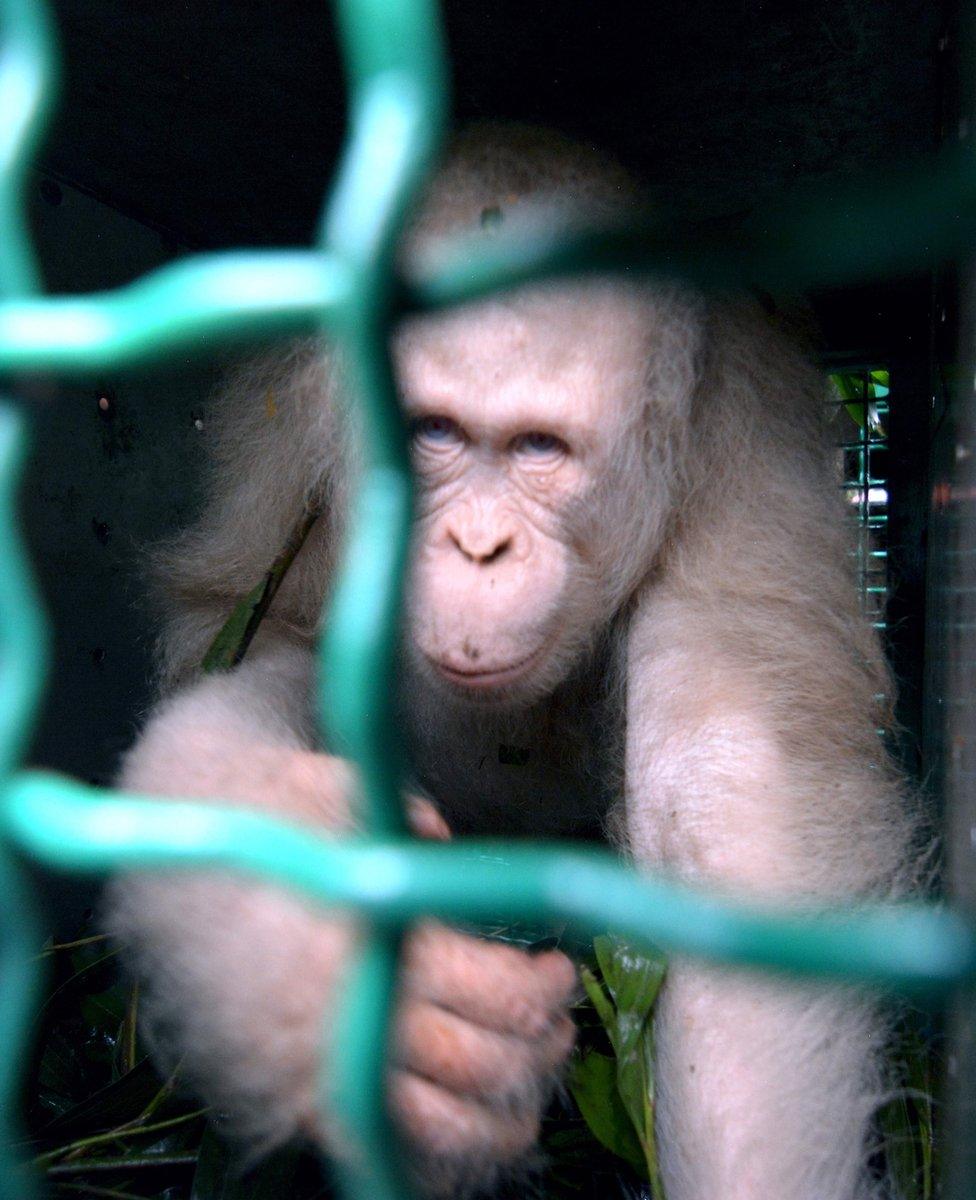Borneo's Albino orangutan released back into the wild
- Published
The first-ever recorded albino orangutan has been released into the wild, nearly two years after it was first discovered by the Borneo Orangutan Survival Foundation (BOSF).

Alba was rescued by the government's Central Kalimantan Natural Resource Conservation Agency and the BOSF in April last year, when she was five years old and suffering from stress, dehydration and a parasite infection.
The albino orangutan lacks pigment melanin in her hair and skin and was named after the Latin word for white, following a naming competition by BOSF in May 2017.

Alba's symptoms of albinism had to be taken into account in her rehabilitation strategy. Health complications - including poor eyesight, hearing and susceptibility to skin cancer - make her more vulnerable to predators.
After many months of care at the Nyaru Menteng Orangutan Rehabilitation Center, Alba recovered and thrived in her climbing and socialisation skills.
She also formed a special bond with Kika, another rescued female orangutan.
On 18 December, a team from the rehabilitation centre took Alba and Kika on a challenging journey through the forest, including a four-hour boat ride, to reach a suitable release location.

The BOS Foundation said: "Alba slowly exited her cage and took in her new surroundings, moving cautiously. However, once she realised that humans were present, she quickly moved away into the forest and climbed up a tree.
"She brachiated [moved by using her arms to swing from branch to branch] for a while, showing us her familiarity with a wild environment."
BOSF released a video showing Alba's journey and release, external.
BOSF said: "She finally stopped to rest on a large branch, high up in the forest canopy.
"This was just the beginning of Alba's adventures to come in this true, wild forest!"
You might also like:
Kika and Alba's release into the wild brings the total number of orangutans released by BOSF to 386.
The foundation's Post-Release Monitoring (PRM) team will conduct intensive nest-to-nest monitoring for the next six months to ensure Alba's health and safety.
Initial monitoring confirmed that she had spent her first two days of freedom moving through the canopy forest over 35m (115ft) from the ground.
.